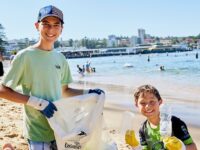Dettol has teamed up with over 75 Australian organisations to contribute more than $7 million worth of hygiene products to support the community.
After doing a survey on the hygiene habits of Australians, the company realised there are still some big gaps in availability to hygiene products, with about 13.6 per cent of the country’s population living in difficult conditions.
In an effort to help to mitigate this issue, the donation contains instant hand sanitiser and wipes to be given to charities, disadvantaged schools and community groups.
“While Australia’s roadmap to reopen is on track, the pandemic is not yet over, and many of our most vulnerable communities are still in vital need of essential hygiene products, including the homeless, children and youth, people with disabilities, migrant and ethnic groups just to name a few,” said Henry Turgoose, marketing director at Reckitt Health AU.
“We must continue to raise awareness that in addition to vaccination, hand hygiene is a number one way to prevent the spread germs in the community. We’re proud to be able to offer our support to these communities to help them protect the ones they love, and themselves, through access to our hygiene products”.
Good360, a non-profit organisation and one of Dettol’s partners, said that the donation will help empower the community and will help to raise people’s awareness to the continuing pandemic.
“We are a lucky country and because of this, it’s easy for many Australians to take for granted access to hygiene necessities like hand sanitisers, soaps and wipes,” said Alison Covington, founder & managing director of Good360.
“But during the pandemic, and now as we emerge from restrictions, we’re increasingly being asked by our vulnerable communities for support and advice about how to access these products.”

















